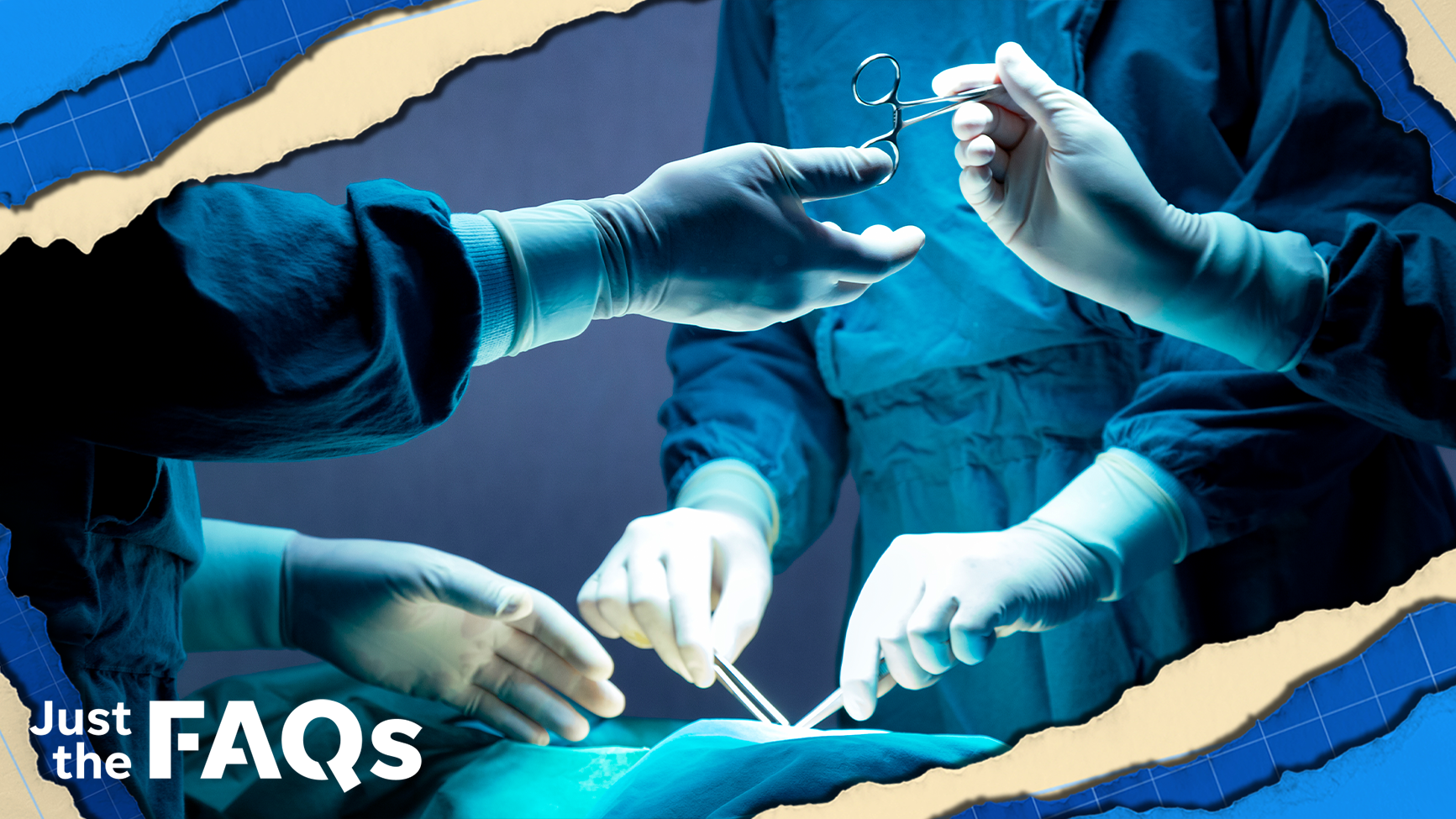How big a role does chance play in health outcomes? New book says more than you may think.

Everyone likes to think they're in control of their lives and their health. Eating well and exercising will lead to a longer, better life. Choosing the right doctor or hospital will lead to the best possible care.
But a lot of health and health care is the result of chance.
If a preschooler is born in the spring or summer, their grandparents are more likely to catch the flu (because the child is less likely to get an annual flu shot and therefore more likely to pass the bug onto their grandparents).
Someone who is two weeks shy of turning 80 is 20% more likely to get cardiac bypass surgery than someone who has already celebrated that birthday.
Getting treated for a sprained ankle by an emergency room doctor who frequently prescribes opioids makes someone more likely to end up with an addiction than someone being treated for the same condition by a different doctor.
Having a heart attack in Boston on Marathon Monday reduces survival chances ‒ not for runners but for people whose ambulances are slowed by all the road closures.
Dr. Anupam Jena recounts studies that reveal results like these in his new book, "Random Acts of Medicine: The Hidden Forces That Sway Doctors, Impact Patients and Shape Our Health," co-written with Dr. Christopher Worsham.
Jena, a critical-care doctor at Massachusetts General Hospital and professor at Harvard Medical School, also has a Ph.D. in economics and uses his combined training to look for patterns in everyday life.
Why do heart attack patients seem to fare better on weeks when top cardiac surgeons are away at conferences? Perhaps because they're getting overtreated, he showed in one study that didn't win him many cardiac surgeon friends.
Paste BN spoke with Jena about the role of randomness in medicine, care and life. This is an edited and condensed version of our conversation.
Question: What do you see as the importance of chance?
Answer: I met someone about a week ago. I asked him: "How did you meet your wife?" He says, "I met her at the DMV (Department of Motor Vehicles)." This woman was behind him talking to someone else about some topic he had a lot of interest in. They struck up a conversation and they ended up getting married.
In many cases, chance is not actionable. You would not recommend going to the DMV to find your future spouse.
But there are these instances where people are exposed to chance occurrences that are actionable in the sense that you can learn something from them.
And learning from chance can help keep us from feeling helpless?
We can understand how chance affects our life, but we don't have to be victims of chance.
Some of them are about awareness. If you're a parent and you have a child with a birthday in August (who's likely to be nearly a full year younger and therefore less mature than other classmates), this might be something that comes up on your radar if your child is struggling at school and someone is considering the diagnosis of ADHD. It doesn't mean they don't have it. They very well might. But if you were going to start addressing it in an August child, you might consider waiting six months and see how they do, whereas with a September child, maybe you don't wait.
In one study you found patients fared better when their doctors were out of town because they were being overtreated. How should the medical system handle that kind of information?
Obviously there are cases where more medical care is better for us. But it's hard to figure out where less is more and where is it that more is more. You can't just guess and you can't just use intuition. And this is a good way to figure out where less might be more. The next step is to figure out which patients might be getting overtested and how do we fix that.
You talk about the how the chance of getting one doctor versus another makes a difference in care. Have you been surprised by a time when it didn't?
Medicine is very politicized: reproductive care, end of life care, things like that. The question we had was whether or not that politicization really enters the doctor's office, because it could. Doctors are people and people have preferences. When it comes at least to end-of-life care, Republican doctors are no more aggressive or invasive at the end of life than Democratic doctors.
During the pandemic, prior to the onset of vaccines, the mortality was very similar (between Republicans and Democrats). There were partisan differences in terms of masking and school closures and business closures. But it turns out they were pretty similar. It's reflective of human behavior, because it's very costly to socially distance. Even though we might say we're doing certain things, when we look at the actual behavior, they were making decisions and tradeoffs and they look to be somewhat similar between blue and red folk.
You have an unusual area of research focus. What drew you to it?
All this research stuff I've been doing over the last 10 years, I was always attracted to it because it was fun. Using the tools of economics to understand human behaviors and things everybody can relate to.
What's next for you? What's your next book going to be about?
If this book does well, I'd like to write about null. There's all these things we have looked at over the years where there's no effect.
Do diabetes hospitalizations for kids go up after Halloween? The answer is no.